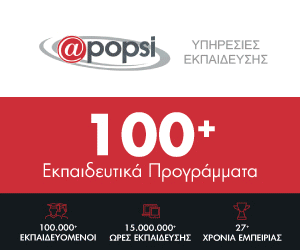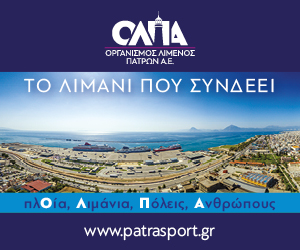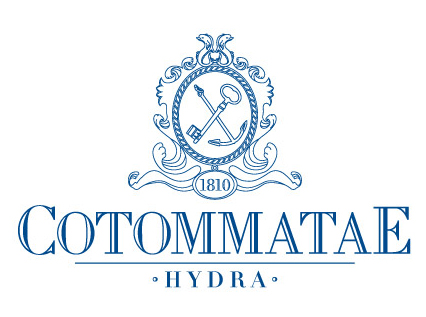The energy crisis, the green transition, the transformation of small and medium enterprises, inflation, digitalization, are some of the «chapters of everyday's life»and the main «summer challenges» for SMEs that constitute the vast majority of business in EU countries. Primarily, business today is called upon to manage the impact on national economies from global crises causing inflationary pressures, while reducing consumption and growth rates. We are in a «war period», the end of which is still indistinguishable. Since the spring of 2020, the pandemic has caused, almost simultaneously, huge problems in the world's economies. From the beginning of the year «increases, delays and shortages» are the words of the year. Inflation has been boosted by sucking out business and household assets, as well as disorganizing distribution chains, with shortages in international trade of raw materials and consumer products.
Globally, food prices according to the UN index are already close to the record of 2011. Even in China, the driving force of global growth, the recovery is slowing down, the IMF recently warned. We are called to respond by facing an «asymmetric threat» of a food crisis the treatment of which goes beyond the known stereotypes. Flexibility and insight are the two elements that must now inspire the production policies for a stronger «European Localization». In terms of inflation, in Greece it appears to be high, but it is at the level of the European average, with the European Commission emphasizing that the measures taken by the Government, as well as the significant increase of the minimum wage, alleviate the inflationary pressures that accepts the disposable income of citizens. I will not stop of pointing out the circularity of the economy. And the increase in the minimum wage has given the first encouraging results to trade mobility. At the same time, despite the adverse conditions, the Greek Government has implemented and continues to implement its reform program, with an entrepreneurship-friendly economic policy consistently aimed at reducing taxes and insurance contributions, in order to further stimulate its productivity, competitiveness and investment attractiveness.
In this «economic canvas», the Piraeus Chamber of Commerce and Industry, in a letter to the Greek Government pointed out the right direction of the draft law«Incentives for Business Development, through partnerships and corporate transformations», proposing attractive tax to be applied between Greek and European companies of the Eurozone, provided that they choose Greece as their physical and tax headquarters. The goal is obvious. Through the provision of incentives is the creation of economies of scale, through transformations of very small, small and medium enterprises, but also collaborations of persons, for all sectors of economic activity. Essentially, this will give companies a significant incentive to join forces and get rid of income tax on the new company's taxable profits. The Greek economy needs to attract companies from the EU to be placed in sectors of the Greek economy so that small and medium enterprises can gain horizons for the development of synergies and collaborations through schemes that will strengthen extroversion and competitiveness beyond the fact of increasing jobs. Besides we must avoid the «Big Quit» phenomenon of workers from their jobs, mainly observed in USA and UK by adapting human resources skills in the context of the Smart Specialization Strategy and the «Soft Skills and Human Well-being».
We must through realistic and measurable proposals, to support competitive entrepreneurship, aiming at the wider development and independence of the European Economy. Regarding the energy and the green transition, we submitted to the government a specific proposal which is in line with «REPowerEU for the Solar Strategy» pointing out that the full potential of solar energy should be utilized in order to contribute to achieving the goals of the Europe Green Agreement. More specifically, the proposal «3S» ie Self-production, Storage, Self-consumption of Electricity for households and businesses, can be implemented with a subsidy through the green transition funds, utilizing all available financial tools related to the effort to reduce the environmental footprint, but also financing the installation and storage infrastructure, which is the most expensive part for a solar investment, through the Green Portfolio Guaranty Fund. The product funds can be raised from the Public Investment Program and the loan funds, concluded by the Greek State with the EIB. In addition, ESCOs, which will offer the study and the necessary equipment to households and businesses, can be funded.
The energy costs, which particularly plague SMEs, must be significantly reduced by turning to Renewable Energy Sources (RES) on the one hand through an incentive policy for these companies to join forces and on the other hand through an information policy of the public for the benefits of the use of RES which will aim at the same time at the elimination of ideologies that cost time and today in money as businesses and households «put their hands deep in the pocket» paying not the cost of energy but the lost of time for more than a decade where investments in RES were «demonized» in favor of the cheap Russian natural gas. Digitization is also a big challenge. The digital modernization of companies in combination with the retraining of staff in the new data and the extroversion but also the digital modernization by the state, so that the 20% of man-hours are not wasted in bureaucratic procedures that could be done with the press of a few keys.
Last but not least, we must learn the lessons from economic, pandemic and energy crises, such as emergency preparedness, openness of the single market, energy surplus and agrifood safety. We expect that the experience of the Russian-Ukraine war will lead to concrete actions to make European economies more resilient in the future. «Time is money» and it must be understood that there is no luxury for European business to waste time and therefore money. The economy is circular so both, loss and profit, prosperity or not, are affecting everyone and all together in EU.
Position Paper by Vassilis Korkidis to GA & BoD EuroCommerce in Brussels 14-15/6/22



















